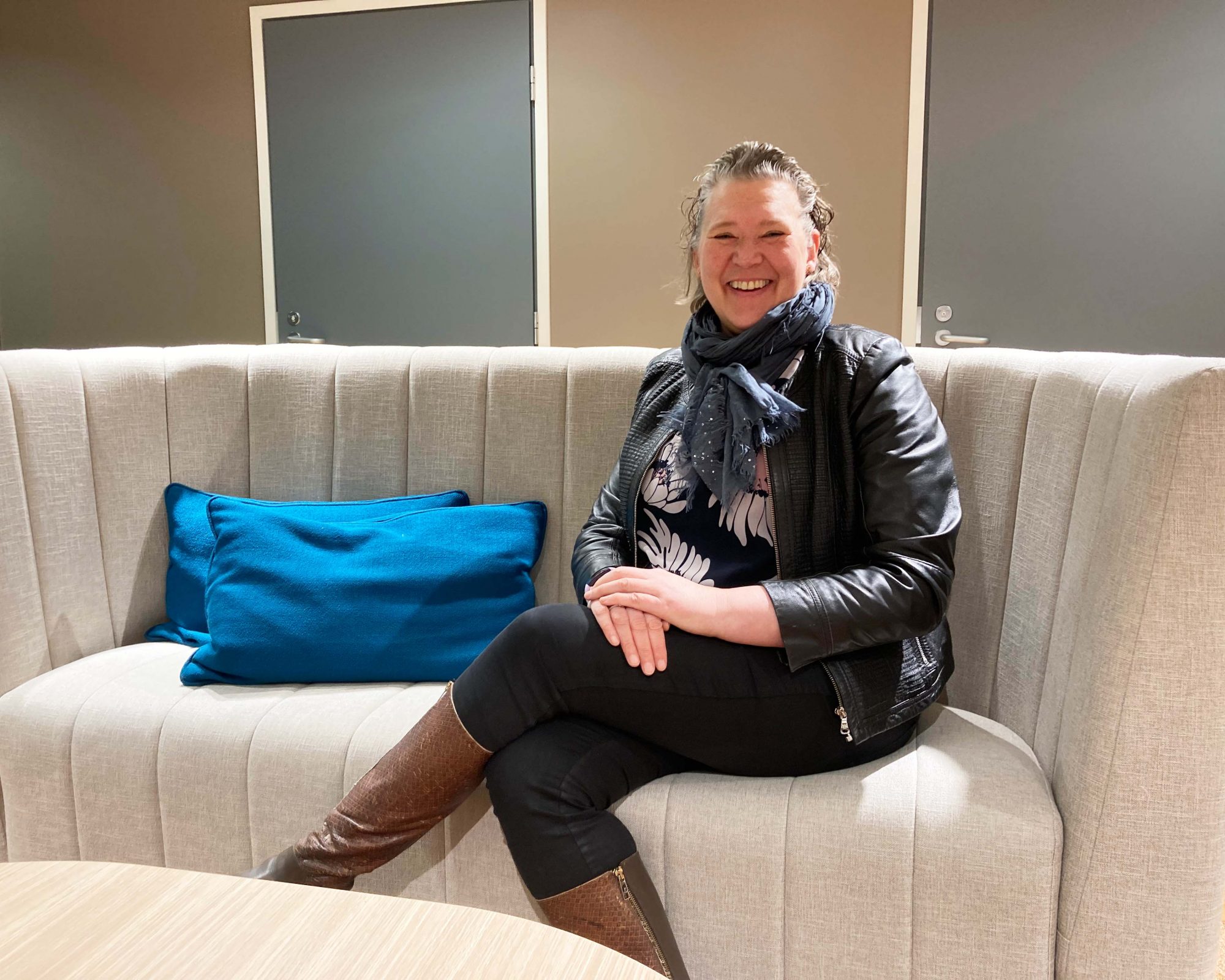Learn more about our hospital’s staff: Clinical specialist Katri
22.1.2024 Categories: Articles
Katri joined Docrates in 2009, two years after the hospital was founded, which means that she has been able to see and experience the hospital’s growth and development from the very beginning. Her role as an employee has also changed over the years. In her first years at Docrates, Katri was involved in setting up the drug therapy unit, and when the hospital’s first coordinating nurses started in their new roles in 2011, Katri was one of them.
The irreplaceable role of the coordinating nurse
For most of her career at Docrates, Katri has worked as a coordinating nurse. Katri’s handprint is still very evident in the day-to-day work and job description of coordinators.
– It’s a really varied job, and the coordinating nurse is involved in many things. You could almost say that when you’ve been a coordinating nurse, you’ve seen almost everything, says Katri.
From the moment the patient arrives at the hospital for the first appointment, the coordinating nurse starts working with the patient. They handle the practical matters related to the treatment of the patient, but it is at least as important to support the patient by remaining by their side in a difficult situation.
– The work of a coordinating nurse is demanding. It takes a lot. But what it gives cannot even be put into words. In this role, the work feels hugely meaningful, Katri says.
Using genetic information as part of personalised cancer treatment
Developments in cancer treatment have also changed Katri’s job description. Precision oncology is already an ordinary part of cancer treatment today. The term refers to providing the patient with personalised treatment based on their individual genetic and molecular diagnostics. Docrates is a pioneer in the use of genetic information, and the use of genetic information as part of treatments has long been part of everyday life at the private cancer hospital. It is also part of Katri’s working days, which are currently largely spent on gene profiling. The introduction of new gene tests is a long and complex process. Katri’s job is to ensure that these processes are in order and kept up to date.
– When there is a need for a new gene test, everything starts with an initial meeting with me, a doctor and a hospital cell biologist. We then talk about what kind of test we are looking at, how we could start using the test at Docrates and how transport and other practical matters related to the test would be handled. The introduction of a single test is a complex process that involves many different steps. The time span from the initial meeting to having the test in use here is often a few months, Katri says.
– And once the test is in use, it’s my job to keep a close eye on how the first shipments go and make sure that the whole process is fine-tuned. It’s also important to instruct personnel about the new tests and to ensure the usability and security of the test portal, Katri says.
– The number of tests to be introduced is constantly growing and there is an increasing number of different tests available. Of course, we always require a doctor’s careful assessment to determine which tests are right for us. We have very high quality standards, and, of course, every test we use has to comply with them, says Katri.
Close cooperation for the benefit of patients
Katri’s work involves close cooperation, primarily with doctors and a hospital cell biologist. Most of the results are sent to the test portal or via secure connections, after which the results are processed by doctors and other specialists in a tumor meeting. Katri is responsible for ensuring that the process is watertight and that the results are available to the specialists at the right time.
– And here too, the focus is on the patient and the best possible personalised treatment tailored to them, Katri says.
Katri praises the hospital’s work community and team spirit.
– This job wouldn’t feel like this without great colleagues and smooth cooperation. My colleagues give a lot. Of course, it also makes a difference that the job is really interesting and just challenging enough. It’s great to have a front-row seat to this remarkable development. I’m always learning new things. And most importantly, it’s fantastic to see how we can offer patients even better and more personalised treatment, says Katri.
The digital patient journey enables quick access to your treatment team
At Docrates, Katri is also responsible for the digital treatment journey for patients, the Kaiku Health service.
– Kaiku is a great help for both patients and our healthcare personnel. The service provides patients with quick and easy remote access to healthcare personnel, and follow-ups are also performed via Kaiku. Kaiku enables seamless and real-time communication between nurse and patient, and any member of the patient’s own treatment team can reply to the patient, so that the patient’s waiting time is not tied to one nurse, Katri says, listing the benefits of the digital treatment journey.
Katri is also a much-requested lecturer outside Docrates, and she has given lectures at, for example, training days for cancer nurses, various training events and other training days via pharmaceutical companies. Most of the lectures have been about gene tests and tablet medications, but the patient journey at Docrates is also unique and something that audiences are interested in.












